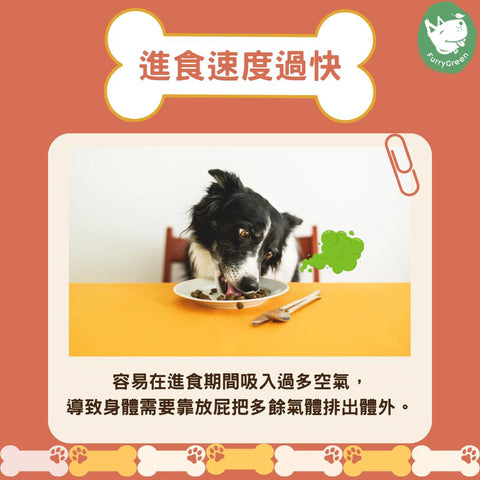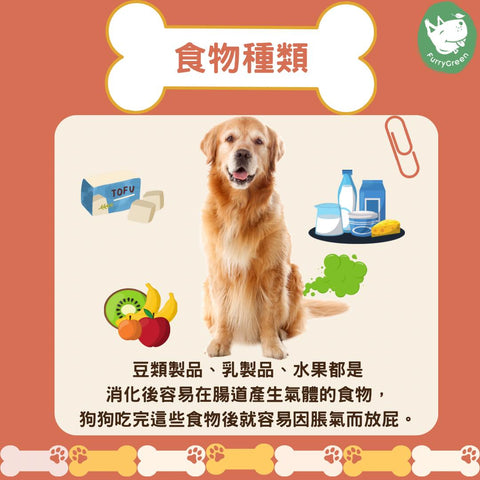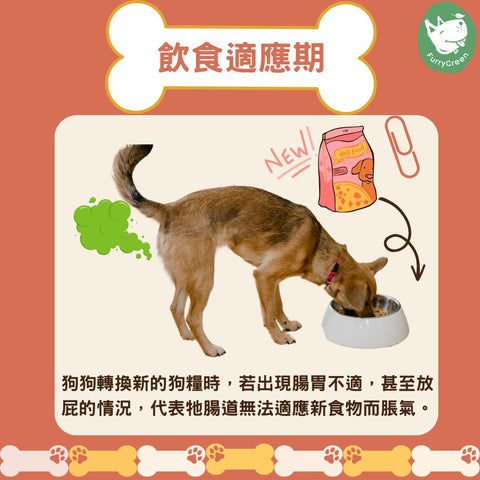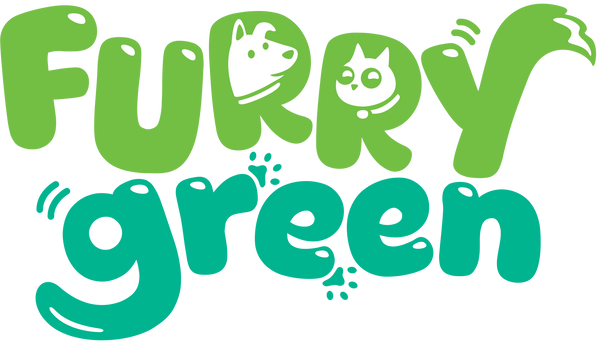
Unleashing the Mystery of Dog Farts: Understanding, Solutions, and Keeping the Air Fresh
Share
Why Your Dog Farts (and What You Can Do About It)
Dog farts are totally normal—but when they become frequent, loud, or… eye-wateringly smelly, it's natural to wonder what's going on. As dog parents, we want our pups feeling comfy from nose to tail. Here's what might be behind the gas, plus simple ways to help.

💨 Why Dogs Get Gassy

1. Eating Too Fast
Fast eaters swallow a lot of air while inhaling their meals. That air eventually escapes as gas. Slowing mealtime can make a big difference.

2. Gassy Ingredients
Some foods naturally produce more gas, such as:
- Beans
- Broccoli
- Cabbage
Dogs with certain food sensitivities may also experience more flatulence.

3. Sudden Diet Changes
A quick switch from one diet to another can upset the gut and lead to more gas. A gradual transition helps the digestive system adapt smoothly.

4. Not Enough Exercise
Regular movement keeps the digestive tract functioning normally. A low-activity lifestyle may slow things down and increase gas buildup.
5. When Gas May Mean Something More
Persistent, worsening, or very foul-smelling gas can sometimes be associated with digestive discomfort. If you notice additional changes—such as decreased appetite or vomiting—it's best to check in with a veterinarian for guidance.
Ways to Help Reduce Dog Farts

1.Use Slow-Feeders or Pacing Techniques
Slow-feeder bowls, puzzle feeders, or offering smaller meals can reduce air gulping.
2.Switch Foods Gradually
When introducing new foods, mix small amounts with the old diet over 7–10 days.
3.Support Gut Health
Probiotics and digestive enzymes may support digestion, but it's always best to ask your veterinarian which products suit your dog.
4.Track Possible Triggers
Keep a simple "gas journal" of foods, treats, and symptoms to spot patterns.
5.Stay Consistent & Patient
Digestive changes take time—small steps make a big difference.
🌿 Lifestyle Tips for Happier Digestion
- Provide daily walks or light play sessions
- Ensure constant access to fresh water
- Avoid feeding table scraps that may upset the stomach
💚 Try Furry Green: Gentle Nutrition for Sensitive Tummies
If you're looking for a digestion-friendly option, Furry Green creates simple, whole-food recipes designed with gut comfort in mind. Explore our range to find the perfect fit for your pup's lifestyle.
Explore Furry Green✔️ Conclusion
A little gas is normal, but understanding the causes helps you support a more comfortable, less-gassy pup. If the issue persists or comes with other symptoms, contacting a veterinarian is a smart next step.
EXTRA ! when to call vet check list!

Frequently Asked Questions
Why does my dog fart so much?
Dogs can experience increased gas due to eating too quickly (swallowing air), consuming gas-producing foods like beans or broccoli, sudden diet changes, lack of exercise, or underlying digestive sensitivities. Identifying the cause helps you address the issue effectively.
How can I reduce my dog's flatulence?
Use slow-feeder bowls to reduce air gulping, transition foods gradually over 7-10 days, provide regular exercise, consider probiotics or digestive enzymes (consult your vet), and track possible food triggers. Small, consistent changes make a big difference.
When should I see a vet about my dog's gas?
If your dog's gas is persistent, worsening, or accompanied by symptoms like decreased appetite, vomiting, diarrhea, or behavioral changes, it's best to consult a veterinarian to rule out underlying digestive issues.
📚 References (General Educational Sources)
- WSAVA Global Nutrition Committee
- American College of Veterinary Nutrition (ACVN) Public Guidelines
- Standard veterinary physiology and GI function references
- General teaching materials in veterinary clinical pathology (non-case specific)
